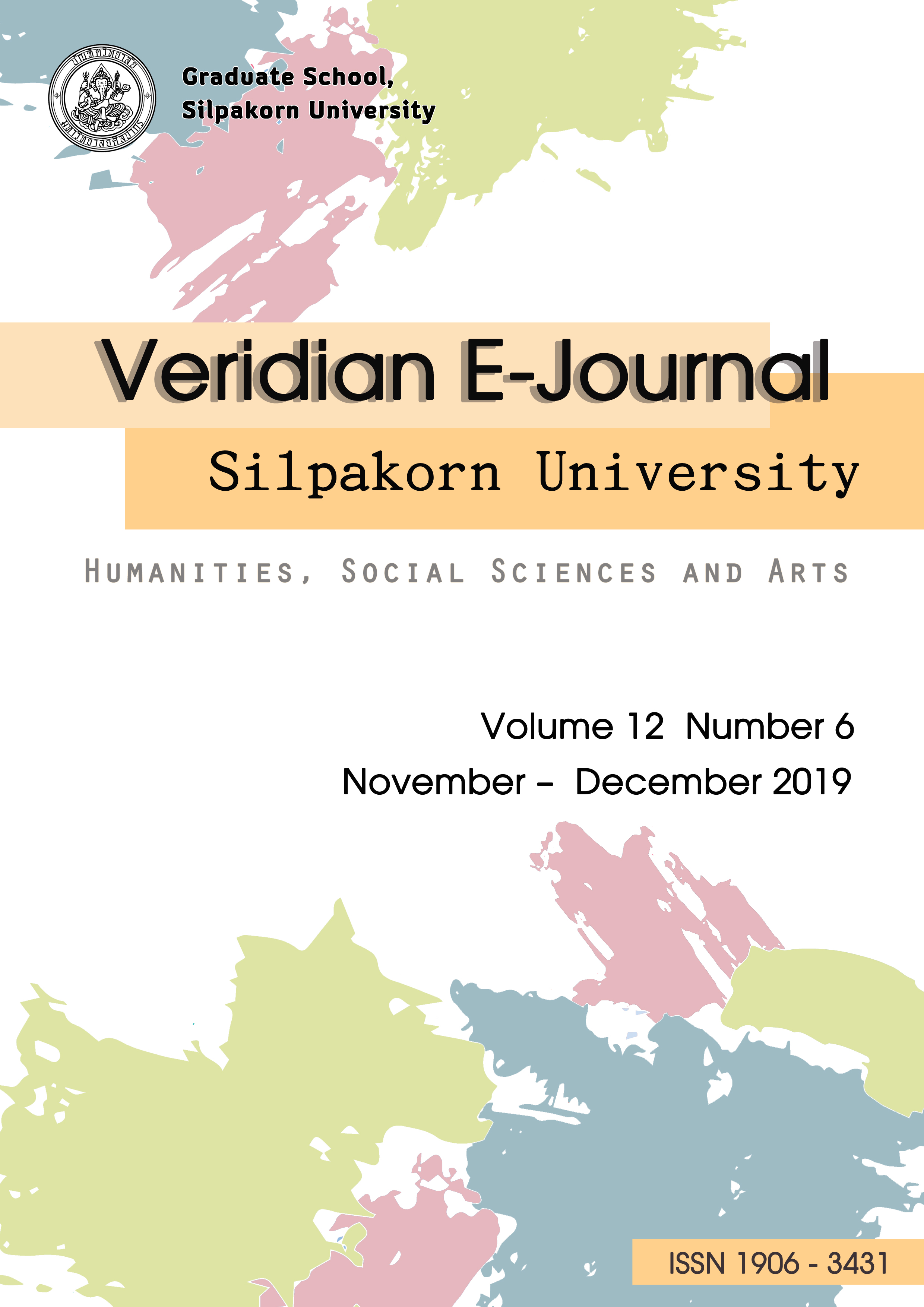การศึกษาแนวโน้มความสำเร็จในการนำนโยบายไปปฏิบัติ กรณีศึกษาความเปลี่ยนแปลงในการปฏิบัติที่อาจเกิดขึ้นงานของเจ้าหน้าที่ในส่วนงานปราบปราม ตามร่างพระราชบัญญัติยาเสพติดให้โทษ พ.ศ. 2559 (The Study of the Likelihood of Success in Policy Implementation: Case Study of Potential Changes in Practices of Suppression Officers under The Narcotics Act, B.E. 2562 (2019))
Main Article Content
Abstract
งานวิจัยชิ้นนี้มีวัตถุประสงค์เพื่อ 1. เพื่อศึกษาความเปลี่ยนแปลงของพระราชบัญญัติยาเสพติดให้โทษที่ส่งผลกระทบต่อการปฏิบัติงานของเจ้าหน้าที่ส่วนงานปราบปรามยาเสพติด 2. เพื่อศึกษาความเป็นไปได้ที่จะประสบความสำเร็จในการนำนโยบายไปปฏิบัติจากความเปลี่ยนแปลงของพระราชบัญญัติยาเสพติดให้โทษของเจ้าหน้าที่ส่วนงานปราบปรามยาและ 3. เพื่อสร้างข้อเสนอแนะเชิงนโยบายที่ได้จากผลการวิจัย โดยการใช้วิธีการวิจัยเชิงคุณภาพ ด้วยการวิจัยเอกสารและการสนทนากลุ่มเจ้าหน้าที่ผู้มีส่วนเกี่ยวข้องกับงานปราบปราม 3 ครั้ง จำนวนทั้งสิ้น 35 คน ซึ่งเป็นเจ้าหน้าที่ผู้บริหารกลาง ระดับต้น และเจ้าหน้าที่ผู้ปฏิบัติ ประกอบไปด้วยเจ้าหน้าที่ตำรวจ เจ้าหน้าที่สำนักงานป้องกันและปราบปรามยาเสพติดส่วนงานปราบปรามและงานแผน เจ้าหน้าที่ปกครอง เจ้าหน้าที่กรมศุลกากร ทหาร และผู้มีส่วนเกี่ยวข้องอื่น
ผลการวิเคราะห์ส่วนที่หนึ่งพบว่า การเปลี่ยนแปลงข้อกฎหมายทำให้สายงานปราบปรามได้รับผลกระทบด้วยกัน 4 ลักษณะคือ 1. วิธีปฏิบัติหรือกระบวนงานที่เปลี่ยนไปจากเดิมเนื่องจากตัวบทที่เปลี่ยนแปลง 2. ความเปลี่ยนแปลงเชิงโครงสร้างความสัมพันธ์ของอำนาจกับหน่วยงานที่เกี่ยวข้อง 3.ผลกระทบจากการจัดสรรทรัพยากรใหม่ 4. การหาช่องทางกระทำผิดตามช่องว่างของกฎหมายใหม่
ผลการวิเคราะห์ในส่วนที่สองเป็นการวิเคราะห์ความเป็นไปได้ในการนำนโยบายไปปฏิบัติด้วยทฤษฎีการนำนโยบายไปปฏิบัติด้วยมุมมองแบบล่างขึ้นบนพบว่า 1. ผู้ปฏิบัติน่าจะสามารถทำให้เกิดผลการนำไปปฏิบัติได้จริงเนื่องจากมีความเปลี่ยนแปลงแนวทางการปฏิบัติเดิมที่น้อย และมุมมองแบบบนลงล่างพบว่า 2.นโยบายมีความเป็นไปได้ที่จะนำไปปฏิบัติเนื่องจาก มีการยอมรับเป้าหมายนโยบายสูงและความเปลี่ยนแปลงในการปฏิบัติต่ำ อย่างไรก็ตามจากการวิเคราะห์พบข้อจำกัดบางประการนำไปสู่ข้อเสนอเชิงนโยบายคือ 1.การสร้างแนวทางเพื่อทำความเข้าใจร่วมกันของหน่วยงานที่เกี่ยวข้องกับสายงานปราบปรามยาเสพติดถึงรูปแบบการปฏิบัติที่จะเปลี่ยนไปอันเนื่องมาจากการเปลี่ยนแปลงกฎหมาย 2.การสร้างแนวทางระดับปฎิบัติที่ยืดหยุ่นขึ้นตามข้อกฏหมายที่เปลี่ยนแปลง
This research aimed to 1) study the amendment to the Narcotics Act which affected the performance of narcotics control officers, 2) study the possibility of policy implementation achievement of narcotics control officers as a result of the amendment to the Narcotics Act, and 3) make policy recommendations based on research findings. This study was qualitative study, which consisted of documentary research and group discussions. Three group discussions were carried out with 35 narcotics control officers – middle and top management and operational officers, who were police officers, officers from the Office of the Narcotics Control Board (Suppression and Planning Division), administrative officers, customs officers, military officers, and other stakeholders.
The first part of the analysis revealed that the legal amendment exposed the suppression function to four things: Change in work practices or processes, change in the structure of the power relations with relevant authorities, impact of new resource allocation, and people’s seeking channels to commit offences through loopholes of the amended law.
The second part of the analysis dealt with the study of the possibility of policy implementation. Based on the bottom-up approach, the analysis suggested that operational officers should be able to achieve practical results due to slight change in practices. On the other hand, the analysis using the top-down approach showed possibility of policy implementation. However, some limitations were identified, which led to the policy recommendations – the formulation of the guidelines for establishing a mutual understanding about change in practices as a result of legal amendment among agencies involved in narcotics control and the formulation of operational guidelines that are more flexible in line with amended law.

